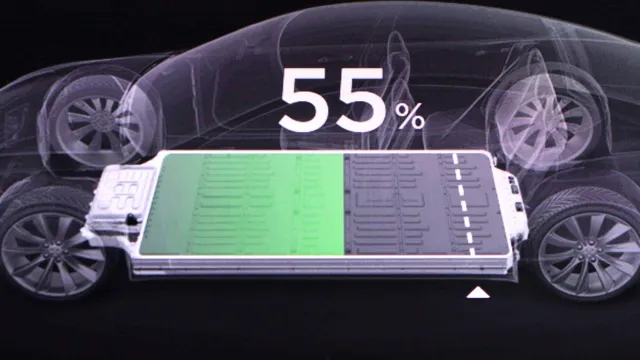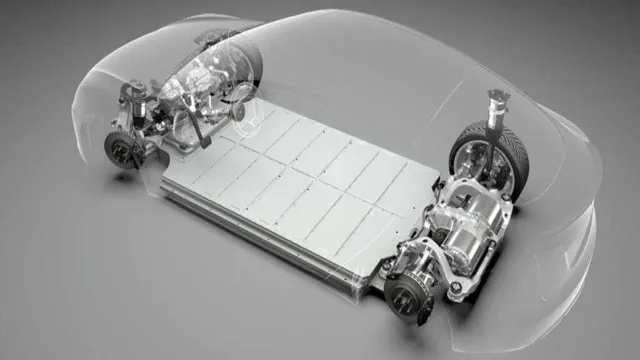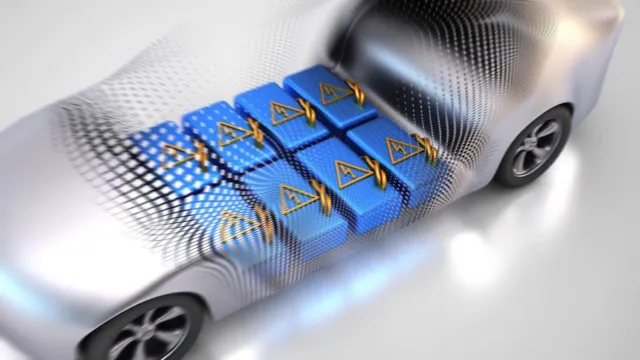Revolutionizing the Road: Unveiling the Spectacular Battery Life of Tesla Electric Cars
Electric cars are gaining traction in the automobile industry, with more and more individuals opting for this eco-friendly mode of transportation. With the shift towards a more sustainable lifestyle, battery life has become a crucial factor in deciding which electric car to buy. When it comes to electric car battery life, Tesla is arguably one of the leading brands known for impressive performance and reliability.
However, with competitors stepping up their game, it’s worth exploring the differences in battery life between Tesla and other electric car manufacturers. In this blog, we’ll take a closer look at the battery life of Tesla’s electric cars and compare them to some of their closest competitors. So, if you’re in the market for an electric car, keep reading to learn more and make an informed decision.
Tesla’s Battery Life Performance
Tesla’s electric car battery life performance is quite impressive. The company’s innovative technology has allowed for longer battery life than many of its competitors. Tesla’s Model S, for instance, has a battery range of up to 402 miles, which is far beyond what most other electric cars can manage.
Additionally, Tesla’s batteries are designed to retain their capacity even after many years of use. While many electric vehicle batteries experience degradation over time, Tesla’s batteries appear to hold up well. This is partially because they use a liquid cooling system that helps keep the battery cells at an optimal temperature.
Overall, Tesla’s battery life performance is a key reason why many people choose to buy their electric cars. Not only do they offer long ranges, but they are also designed to last for many years, making them a very practical choice for environmentally conscious drivers.
Model S
Tesla’s Model S boasts impressive battery life performance that sets it apart from its competitors. With the standard battery, the Model S can drive up to 402 miles on a single charge, making it one of the longest-lasting electric vehicles on the market. Additionally, the vehicle’s battery has a fast charging capability, allowing for a 50% charge in just 20 minutes at a Tesla Supercharger station.
The Model S battery also has a regenerative braking system that recovers energy during braking, further enhancing the car’s efficiency and range. Overall, Tesla’s commitment to battery technology has allowed the Model S to deliver an exceptional driving experience while being environmentally conscious and cost-effective for the long run. It’s no surprise that the Model S has become the iconic flagship vehicle for Tesla, and it’s all thanks to the powerful battery that drives it.

Model X
Model X, Battery Life Performance If you’re in the market for an electric vehicle, you may have heard that battery life is a major concern. Luckily for Tesla Model X owners, the battery life performance is exceptional. The Model X has an impressive range, making it an ideal choice for long drives and road trips.
But it’s not just about range – the battery life performance of the Model X is also exceptional when it comes to charging. With the Supercharger network, you can charge up to 80% in just 40 minutes. Plus, the battery has a long lifespan, meaning you won’t have to replace it as often as you might with other electric vehicles.
So, don’t let battery life concerns hold you back from purchasing a Model X – it’s one of the best electric vehicles on the market when it comes to battery life performance.
Model 3
Tesla’s Model 3 is known for its impressive battery life performance, making it a popular choice among electric vehicle enthusiasts. The car’s long-range battery options, with up to 353 miles of range, make it a top contender for those looking for a reliable and sustainable mode of transportation. The battery life of the Model 3 is also impressive in terms of its fast charging capabilities.
The car can charge up to 170 miles of range in just 30 minutes, making it a convenient option for road trips. Additionally, the battery is designed to last for a long time, reducing the need for costly replacements. Overall, Tesla has set a high standard for battery life performance in the electric vehicle industry, and the Model 3 is no exception.
Comparing Tesla’s Battery Life to Competitors
When it comes to electric car battery life, Tesla has set the bar high. Many of its models boast a range of over 300 miles per charge, far surpassing the competition. One potential reason for Tesla’s success in this area is its use of advanced battery technology, such as its proprietary lithium-ion batteries.
These batteries are designed to be highly efficient and long-lasting, allowing Tesla’s vehicles to go further on a single charge. Additionally, Tesla has a vast network of charging stations, making it easier for owners to top up their batteries on longer trips. While other automakers, such as Nissan and Chevrolet, have made strides in improving their electric car battery life, Tesla remains the leader in this space.
As electric cars continue to gain popularity, it will be interesting to see how Tesla’s battery technology evolves to meet the demands of consumers.
Chevrolet Bolt
When it comes to electric vehicles, one of the most important factors for potential buyers is battery life. With Tesla leading the way in the market, it’s natural to wonder how other competitors measure up. The Chevrolet Bolt, for example, boasts a solid battery life that can travel up to 259 miles on a single charge.
While this falls short of Tesla’s Model S, which can travel up to 402 miles on a single charge, it’s still a respectable range for a more affordable electric car. In fact, the Bolt has a starting price of around $36,000, making it a great option for those who want to make the switch to an electric vehicle without breaking the bank. In terms of charging time, the Bolt can charge up to 100% in just over 9 hours on a Level 2 charger.
Overall, the Chevrolet Bolt offers a competitive battery life for its price range and could be a great alternative for those who want a reliable electric car without the steep price tag.
Nissan Leaf
Nissan Leaf When it comes to electric cars, one of the biggest concerns for potential buyers is battery life. How long will it last, and how does it compare to other options on the market? Well, if you’re considering the Nissan Leaf, you might be pleasantly surprised by the battery life. The 2021 Leaf can travel up to 149 miles on a single charge, which is a decent range for most people’s daily lives.
Of course, this pales in comparison to the Tesla Model S, which can travel up to 390 miles on a single charge. However, the Leaf is also significantly cheaper than the Model S, which is something to consider. Ultimately, it comes down to your own priorities and needs.
If range is the most important factor, the Model S might be a better choice. But if affordability is a priority, the Leaf is a great option that still provides a solid battery life.
Factors That Affect Electric Car Battery Life
When buying an electric car, one of the most important things to consider is the battery life. In the case of Tesla, factors such as driving habits, temperature, and charging frequency can greatly affect the lifespan of the battery. To maximize the battery’s longevity, it’s best to avoid frequent fast charging and always keep the battery within its optimum temperature range.
It’s also important to avoid driving the car to zero charge frequently as this can cause strain on the battery. Tesla’s batteries are designed to last for about 300,000 to 500,000 miles before requiring a replacement, which is significantly longer than traditional gas-powered cars. With proper maintenance, electric car batteries can deliver reliable and efficient performance for years, making the shift to electric vehicles a smart and sustainable choice.
Battery Size and Capacity
Electric car battery life can be affected by several factors, including battery size and capacity. The bigger the battery, the higher the range of the electric car and the longer the battery can last. However, the capacity of the battery also plays a significant role in determining its lifespan.
Over time, the battery’s capacity will gradually deteriorate, leading to a decrease in range and performance. Factors that can affect battery capacity include temperature, charging frequency, and depth of discharge. High temperatures can cause the battery to degrade faster, while frequent charging and discharging cycles can also wear out the battery faster.
To extend the lifespan of an electric car battery, it’s important to maintain it properly and avoid extreme operating conditions whenever possible. Ultimately, the battery size and capacity are crucial factors in determining the performance and longevity of an electric car, making it essential to choose a car with a high-quality battery that can meet your specific needs.
Driving Habits and Conditions
One of the biggest factors that affects the battery life of an electric car is driving habits and conditions. Driving style plays a major role in how much charge the battery uses, with aggressive acceleration and braking draining the battery faster than smooth, gradual changes in speed. Additionally, using climate control and other accessories will also drain the battery faster.
Driving conditions can also impact battery life, as extreme temperatures can affect the efficiency of the battery. Extreme cold weather can cause the battery to work harder to maintain a charge, while extreme heat can reduce the battery’s overall lifespan. To optimize battery life and ensure maximum efficiency, it is important to be mindful of your driving habits and the conditions in which you are driving.
By doing so, you can extend the life of your electric car’s battery and enjoy long, reliable drives without worrying about running out of power.
Tips to Prolong Electric Car Battery Life
Electric car battery life is an important factor to consider when looking to buy an electric vehicle, especially if you’re investing in a Tesla. Fortunately, there are several ways to prolong the life of your electric car battery. First and foremost, it’s crucial to keep your battery charged regularly and avoid letting it drain completely.
Charging your battery to full capacity and leaving it plugged in can also put a strain on the battery’s longevity. In addition, avoiding extreme heat or cold temperatures can help extend your battery’s lifespan. Tesla also offers various features to help optimize battery life, such as charging to a certain level or scheduling charging during off-peak hours.
By taking these measures, you can help ensure your electric car battery holds its charge and has a longer lifespan.
Conclusion
In conclusion, the life of a Tesla’s electric car battery could be compared to that of a marathon runner. Just like a runner who must pace themselves and train consistently to perform at their best, a Tesla battery must also be cared for and maintained regularly to ensure its longevity. With proper use and charging habits, a Tesla battery can last for many years and miles, allowing drivers to “run” towards a more sustainable and efficient future.
“
FAQs
What is the average lifespan of a Tesla electric car battery?
The average lifespan of a Tesla electric car battery is generally estimated to be around 150,000 to 200,000 miles, or about 8 to 10 years.
How does the type of driving affect the life of an electric car battery?
Frequent hard acceleration, high speeds, and extreme temperatures can all have a negative impact on an electric car battery’s lifespan. In contrast, gentle driving and moderate temperatures can help to extend the battery’s life.
What is the warranty period for a Tesla electric car battery?
Tesla’s electric car batteries come with an 8-year or 120,000-mile warranty, whichever comes first.
Can the battery of a Tesla electric car be replaced?
Yes, the battery of a Tesla electric car can be replaced. However, it is a relatively expensive procedure, costing several thousand dollars, and should only be done when necessary.




